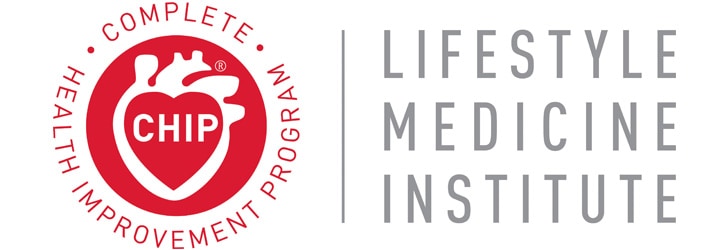Established in 2013, the Lifestyle Medicine and Health Research Centre seeks to foster multidisciplinary research relating to lifestyle, health and wellbeing. The Centre brings together academics from Avondale University as well as collaborating researchers from other Australian and International institutions. The mission of the Lifestyle Medicine and Health Research Centre is to enhance health and wellbeing through high-impact research and community engagement.

The latest Annual Report documenting the activities of this Centre can be viewed on the research page.
The Lifestyle Medicine and Health Research Centre is governed by the Lifestyle Medicine and Health Research Centre Board.
Professor Darren Morton
Lake Macquarie Campus, Avondale University
Telephone: +61 2 4980 2161
Email: [email protected]
| Team | Professor Brett Mitchell, Avondale University |
|---|---|
| Description | Urinary-tract infections occur commonly in both the community and hospital settings. In a series of studies and publications, the first such study of its kind in Australia, contemporary data on infection rates were determined and a standardised approach for surveillance was developed. |
| Impact Summary | The impact of this research is evidenced in two different ways: (1) the development of a national approach to undertaking urinary-tract infection surveillance in Australian hospitals; and (2) support for a state-wide approach to infection-prevention strategies in hospitals in New South Wales. |
Urinary-tract infections occur commonly infection in both community and hospital settings. Approximately 8% of all patients who are admitted to a hospital acquire an infection they did not have at the tie of admission. Infections that are associated with receiving healthcare are called healthcare-associated infections. It has been estimated that 200,000 healthcare-associated infections occur each year in Australia, although these data are potentially unreliable.
Approximately 30% of healthcare-associated infections are urinary-tract infections (HAUTIs).
A large proportion of HAUTIs are associated with urinary catheter use and potentially can be prevented. HAUTIs that are associated or caused by catheter use are called catheter-associated urinary-tract infections (CAUTIs).
In our series of studies, we sought to establish the point prevalence of HAUTIs and CAUTIs in Australian hospitals, to describe the level and comprehensiveness of documentation related to care of urinary catheters, and to compare two internationally accepted definitions and approaches for surveillance of these infections in hospitals. This was the first such study of its kind in Australia, and it provided contemporary data on infection rates which in turn justified a larger study and interventions to reduce this infection.1
Healthcare-associated infections; infectious diseases; preventative medicine
This impact of this research is evidenced in two different ways: (1) the development of a national approach to undertaking urinary-tract infection surveillance in Australian hospitals; and (2) support for a state-wide approach to infection-prevention strategies in hospitals in New South Wales.
The initial study, undertaken in six Australian hospitals, demonstrated the frequency at which this infection was occurring in Australia and provided an assessment of best method for hospitals to undertake surveillance.1 This resulted in the publication of a national protocol paper to set out an agreed method for undertaking surveillance of urinary-tract infections in Australia.2 The proposed approach has since been adopted by Australian hospitals and aged-care facilities, with the researchers having provided the platform for the collecting and benchmarking of these data. The uptake from this was notable: 87 acute-care facilities and 17 aged-care facilities across four Australian jurisdictions took part in 2015.3 This is the only multi-centre hospital surveillance program available nationally that is not run by a government department.
After demonstrating the impact this infection has on patients and on the health service, a state-wide quality improvement project was developed and launched by the Clinical Excellence Commission in New South Wales. This initiative focused on preventing catheter-associated urinary-tract infections. Guidance for clinical practice is now in place and is being implemented in public hospitals across New South Wales. At the launch of this initiative, A/Prof Mitchell was an invited speaker. It is envisaged that the clinical guidelines will now also be integrated into the undergraduate nursing curriculum. The impact is enhanced by A/Prof Mitchell’s being the lead author on a national positions statement on preventing catheter-related infections5, which was incorporated into NHMRC national infection control guidelines. These guidelines are reinforced by hospital accreditation standards, specifically Standard 3, meaning they need to be followed within Australian hospitals. The importance of this work has also been recognised by the organisers of the 5th International Australasian College for Infection Prevention and Control conference held in Melbourne in 2016. At this conference, there was a concurrent session dedicated to this topic and A/Prof Mitchell was invited to address the closing plenary session in whch he argued a case for more national work in this area.
Importantly, A/ProfMitchell was invited by the New England Journal of Medicine to join an expert panel when it recently published notable research in this area. Their association with this high-profile publication demonstrates that the authors working in this field are now recognised and respected internationally.
The research also led to the identification of gaps and areas for future research which has resulted in another successful grant application and two additional grants are currently under review.
111002 Clinical Nursing: Primary (Preventative)
111003 Clinical Nursing: Secondary (Acute Care)
060502 Infectious Agents
111716 Preventive Medicine
Australian Catholic University, ACT Health, VICNISS (Melbourne Health).
| Team | Dr Darren Morton, Avondale University Dr Lillian Kent, Avondale University Dr Paul Rankin, South Pacific Division of Seventh-day Adventists |
|---|---|
| Description | The Complete Health Improvement Program (CHIP) is a lifestyle medicineintervention that targets chronic diseases. Members of the Lifestyle Medicine and Health Research Centre at Avondale University made a major contribution to the development of CHIP and feature in the program. CHIP now operates in over 10 countries and is widely recognised as a leading community-based lifestyle intervention. The LMHRC is the preferred research-centre for CHIP-related studies and the centre receives data from CHIP programs conducted throughout the world. This has attracted higher-degree research students and has resulted in several international publications. |
| Impact Summary | The activities of the LMHRC have played an important part in CHIP’s gaining worldwide recognition. In turn, the widespread adoption of CHIP has resulted in the LMHRC’s playing an important role in advancing the emerging field of lifestyle medicine. Lifestyle medicine is now championed by peak bodies in three continents and members of the LMHRC have been acknowledged by all three, as invited speakers at conferences, editorial board members and founding fellows. |
In 2009 Paul Rankin commenced PhD studies at Avondale University, under the supervision of Dr Darren Morton. His research was focused on the outcomes achieved by a lifestyle intervention—known as the Coronary Health Improvement Project (CHIP)— that targeted chronic diseases. Rankin targeted CHIP programs in New Zealand, but a relationship was soon established with the CHIP global headquarters in the United States and he moved the site of his studies to North America. After Rankin publishing his findings in the American Journal of Cardiology, Dr Morton introduced the program to the Australian-based company, Sanitarium Health and Wellbeing . In 2011 Sanitarium purchased the global rights to the program and invited Morton and Rankin to lead the re-development of the program, which was re-named the Complete Health Improvement Program. Dr Morton also appeared as one of the three major presenters in the audio-visual program. CHIP now operates in over 10 countries and is widely recognised as one of the world’s premier community-based lifestyle medicine interventions.
In 2013 the Lifestyle Medicine and Health Research Centre at Avondale signed a memorandum of understanding with Sanitarium, making it the preferred global research-centre for CHIP-related projects. This has led to the production of a number of research publications and has resulted in the Lifestyle Medicine and Health Research Centre’s being viewed as a centre that has high impact.
Lifestyle intervention for chronic disease
While the activities of the LMHRC have played an important part in CHIP’s gaining worldwide recognition, in turn the widespread adoption of CHIP has resulted in the LMHRC playing an important role in advancing the emerging field of lifestyle medicine. Lifestyle medicine is now championed by peak bodies in three continents and members of the LMHRC have been acknowledged by all three— as invited speakers at conferences, editorial board members and as founding fellows. For example, Dr Morton has been an invited speaker at several conferences hosted by both the Australasian Society of Lifestyle Medicine and the American College of Lifestyle Medicine, and was a member of the opening panel of the 2014 American College of Lifestyle Medicine where he represented an Australasian perspective. He was also an invited keynote speaker at the Global Lifestyle Medicine Conference in November, 2016. Dr Morton has also been an invited writer and reviewer for the American Journal of Lifestyle Medicine and has been asked to serve on the editorial board of the forthcoming European-based journal titled Lifestyle Medicine.
In 2015 the LMHRC launched a Graduate Diploma in Lifestyle Medicine. The course has been well received and is formally recognised by the Australasian Society of Lifestyle Medicine as a preferred pathway for health professionals to gain Fellowship standing with the society.
Interest in the CHIP has resulted in collaborations with other academic institutions for grant applications, including the University of Sydney, University of Newcastle, University of Queensland and Western Sydney University. In addition, there have been two higher-degree (research) student completions that were focused on CHIP-related projects and currently there are several HDR students undertaking doctoral research.
Avondale’s LMHRC has gained significant momentum and impact in the Lifestyle Medicine area through its research focus on the CHIP. This is evidenced by members from the research centre being invited by the American Journal of Lifestyle Medicine to write a review of the CHIP, as well as the recognition of the postgraduate course in Lifestyle Medicine offered through the LMHRC by the Australasian Society of Lifestyle Medicine.
The LMHRC has an ongoing relationship with the international CHIP effort that is expanding into other countries.
111716 Preventive Medicine
111104 Public Nutrition Intervention
119999 Other Medical and Health Services.
Sanitarium Health and Wellbeing, Australasian Society of Lifestyle Medicine, University of Sydney, University of Newcastle, University of Queensland, Western Sydney University.
Morton, D., Kent, L., Rankin, P., Mitchell, B.G., Parker, K., Gobble, J., & Diehl, H. (2015). Optimizing the intensity of lifestyle medicine interventions: Similar outcomes for half the sessions.American Journal of Lifestyle Medicine, pre-published October 23, 2015, DOI:10.1177/1559827615612420
Kent, L. M., Morton, D. P., Mañez, J. T., Mañez, S. Q., Yabres, G. D., Diehl, H. A. (2015). The Complete Health Improvement Program (CHIP) and reduction of chronic disease risk factors in the Philippines. Asian Pacific Journal of Health Sciences, 2(2), 67–75.
Kent, L., Morton, D., Rankin, P., Gobble, J. & Diehl, H. (2015). Gender differences in effectiveness of the Complete Health Improvement Program (CHIP). Journal of Nutrition, Education and Behavior, 47(1), 44–52. doi:10.1016/j.jneb.2014.08.016
Morton, D., Rankin, P., Kent, L., Sokolies, R., Dysinger, W., Gobble, J., Diehl, H. (2014). The effectiveness of the Complete Health Improvement Program (CHIP) in Canada for reducing selected chronic disease risk factors. Canadian Journal of Dietetic Practice and Research, 75:72–77. DOI: 10.3148/75.2.2014.72
Kent, L., Morton, D., Rankin, P., Gobble, J. & Diehl, H. (2014). Gender differences in effectiveness of the Complete Health Improvement Program (CHIP). Journal of Nutrition, Education and Behaviour, pre-published 11 October, 2014, DOI:10.1016/j.jneb.2014.08.016
Morton D, Rankin P, Kent L, Dysinger W. (2014). The Complete Health Improvement Program (CHIP): History, evaluation and outcomes. American Journal of Lifestyle Medicine, DOI:10.1177/1559827614531391.
Drozek. D., Diehl, H., Nakazawa, M., Kostohryz, T., Morton, D., Shubrook, J. (2014). Short-term effectiveness of a lifestyle intervention program for reducing selected chronic disease risk factors in individuals living in rural Appalachia: A pilot cohort study. Advances in Preventive Medicine, Article ID 798184, 7 pages, doi:10.1155/2014/798184.
Kent, L., Morton, D., Hurlow, T., Rankin, P., Hanna, A., Diehl, H. (2013). Long-term effectiveness of the community-based Complete Health Improvement Program (CHIP) lifestyle intervention: a cohort study. BMJ Open 2013;3:e003751. doi:10.1136/bmjopen-2013-003751
Kent, L., Morton, D., Rankin, P., Ward, E., Grant, R., Gobble, J. and Diehl, H. (2013). The effect of a low-fat, plant-based lifestyle intervention (CHIP) on serum HDL levels and the implications for metabolic syndrome status – a cohort study. Nutrition & Metabolism 2013, 10:58.
Morton, D., Rankin, P., Morey, P., Kent, L., Hurlow, T., Chang, E., Diehl, H. (2013). The effectiveness of the Complete Health Improvement Program (CHIP) in Australasia for reducing selected chronic disease risk factors: a feasibility study. New Zealand Medical Journal, 126(1370):43–54.
Morton, D.P. (2012). The Complete Health Improvement Program (CHIP) as a lifestyle intervention for the prevention, management and treatment of type 2 diabetes mellitus. Diabetes Management Journal, 41 (Dec,):26–27.
Rankin, P., Morton, D.P., Diehl, H., Gobble, J., Morey, P. & Chang, E. (2012). Effectiveness of a volunteer-delivered lifestyle modification program for reducing cardiovascular disease risk factors. The American Journal of Cardiology, 109(1):82–86.
PhD: Paul Rankin (2014). The effectiveness of a volunteer-delivered community-based lifestyle modification program (CHIP) for reducing the risk factors associated with metabolic syndrome.
MED: Kathryn Matteo (2012). The nature and effectiveness of a community-based volunteer-delivered health education program: a New Zealand-based case study.
MED: Cheryl Carrasco (2013). The impact of a lifestyle education program (CHIP) on cardiovascular disease risk factors: an Australasian study.
| Team | Ms Pia Reierson, Avondale University Dr Lillian Kent, Avondale University Dr Darren Morton, Avondale University |
|---|---|
| Description | Live More is a comprehensive community-based intervention to reduce chronic disease risk-factors and medication usage, while also addressing food security as it relates to availability, access and utilisation. Live More uses the methodology of Reflect to deliver lifestyle messages appropriate to any given local context. |
| Impact Summary | Evidence from preliminary data from the Pacific Islands has stimulated further interest by the Adventist Development and Relief Agency (ADRA) to trial the Live More program in a developing country in Asia where the Reflect methodology is widely used to address cultural issues. ADRA Cambodia has commenced a trial of the Live More program in rural and semi-rural communities in the Pursat District of Cambodia. |
Lifestyle interventions increasingly are being recognised as effective countermeasures for chronic diseases including cardio-vascular disorders and type II diabetes mellitus (T2DM). The Complete Health Improvement Program (CHIP) is a comprehensive, community-based lifestyle intervention developed in the United States and an estimated 60,000 individuals have participated in the program.
The CHIP intervention has shown benefits for the management and reversal of chronic diseases in adults of all ages and has been described by the American College of Lifestyle Medicine as “achieving some of the most impressive clinical outcomes published in the literature” (source of quote) The clinical effectiveness of CHIP has been documented in over 25 peer-reviewed publications in medical and scientific academic journals.
The Adventist Disaster and Relief Agency (ADRA Australia) recognized the strengths of the Complete Health Improvement Program (CHIP) in its holistic approach to providing education that can prevent and reverse chronic disease, supported by strong evidence-based research and documentation evaluating the effectiveness of the program.
However, given the local context of the countries where they work, it is to be expected that the current program would face some challenges in working with the rural and most marginalised parts of some of the low- to medium-income countries:
The new and adaptive approach combines community development/literacy and numeracy (using Reflect) with a modified version of the CHIP messages appropriate to any given local context. The model also focuses more widely on food security and addresses availability, access and utilisation.
Reflect is an approach to learning and social change, and key to the Reflect approach is the creation of a space in which people feel comfortable to meet and discuss issues relevant to them and to their lives. Reflect is being used on a small scale (in single communities) and on a large scale (with thousands of communities), by over 350 organisations. It is used by local, national and international NGOs, by social movements, people’s organisations, and district and regional governments.
Reflect aims to improve the meaningful participation of people in decisions that affect their lives, through strengthening their ability to communicate. It begins with respect and value for people’s existing knowledge and experience and involves a continual cycle of reflection and action. It is not about reflection or learning for the sake of it, but rather reflection for the purpose of change. Since the inability to communicate is both a cause and effect of inequitable power relationships, Reflect employs a wide range of participatory tools to help create an open or democratic environment in which everyone is able to contribute.
In the short term, ADRA Australia is partnering with Avondale University as well as ADRA offices and the Seventh-day Adventist Church in the South Pacific to pilot implementation of a community model of CHIP across three countries in the South Pacific.
The outcomes of the study may provide evidence that a modified and contextualised CHIP can be used in the South Pacific to improve health and well-being. It will also provide evidence that when merged with Reflect, social change will provide for more equitable societies in which all participants are empowered.
Evidence from preliminary data from the Pacific Islands has stimulated more interest by ADRA to trial the Live More program in a third world country in Asia where the Reflect methodology is widely used to address cultural issues. ADRA Cambodia has commenced trialling the Live More program in rural and semi-rural communities in the Pursat District of Cambodia.
The first publication from this research is currently under review by an refereed journal.
This pilot may also provide ADRA with evidence that a viable, well researched, platform for rolling out a community version of CHIP across a broader range of countries within 3-5 years. The ADRA International President endorses/supports the plans, and this high level endorsement within the Network may enable the potential global scale implementation of a community model CHIP across a broad range of third world countries, including those in South America, Africa, Asia, as well as Australian Aboriginal and Torres Strait communities.
111701 Aboriginal and Torres Strait Islander Health 111706 Epidemiology
111708 Health and Community Services 111710 Health Counselling
111712 Health Promotion 111715 Pacific Peoples Health 111716 Preventive Medicine 111717 Primary Health Care
111104 Public Nutrition Intervention
Australian Disaster and Relief Agency, Australasian Research Institute, Trans Pacific Union Mission of the Seventh-Day Adventist Church, Fiji Mission of the SDA Church, Fiji Ministry of Health, Vanuatu Mission of the SDA Church, Vanuatu Ministry of Health, Solomon Islands Mission of the SDA Church, Solomon Islands Ministry of Health.
Ms Pia Reierson is a PhD student at Avondale University of Education, and Drs Lillian Kent and Darren Morton are her doctoral supervisors.
| Team | Dr Malcolm Anderson, Avondale UniversityAssociate Professor Grahame Simpson, Ingham Institute of Applied Medical Research, Brain Injury Rehabilitation Research GroupProfessor Magdalena Mok, The Hong Kong Institute of Education Dr Peter Morey, Avondale UniversityDr Lauren Gillett, Department of Neurology, Liverpool HospitalTamera Gosling, Avondale University |
|---|---|
| Description | A series of investigations were conducted to test a contemporary model of psychological distress in family caregivers of individuals with traumatic brain injury (TBI). The results showed that cognitive and behavioural impairments significantly disrupted family functioning, which in turn increased psychological distress in caregivers. The results have assisted the team to improve targeting of family support interventions. |
| Impact Summary | The team has made unique and innovative contributions to the brain-injury rehabilitation field by being the first to develop a contemporary model of psychological distress in family caregivers of individuals with TBI, and to test the model using structural equation modelling (SEM) techniques. They are the only researchers in the field to have examined the experiences of male family members and the experiences of parental dyads. |
It is widely recognised that families play a critical role in maximising the recovery and long- term community re-integration of people with TBI. However, families face many practical, emotional and relational challenges as they seek to adjust to the trauma of an injured relative, and to having to adopt a carer role. Increasing our understanding of the factors that cause these challenges will enable services to provide more-effective support, with important flow-on benefits to the person with TBI.
Concern has also been expressed about the limited use of explicit conceptual frameworks to study family functioning after TBI. Subsequently, in a series of studies the team used Structural Equation modelling (SEM) to test a conceptual model synthesised from the Conservation of Resources Theory, the McMaster Model of Family Functioning, and Elliott and Eisdorfer’s normative perspective of stress, to understand the interactional effect of TBI on families.
Collectively, the results of our studies supported the model and showed that cognitive and behavioural impairments significantly disrupted family functioning, which in turn increased psychological distress in caregivers. More specifically, for spouses multi-group analysis showed cognitive and behavioural impairments significantly disrupted family functioning, which in turn increased psychological distress. In contrast, cognitive and behavioural impairments did not significantly disrupt family functioning in parents. For parents, however, cognitive impairments increased psychological distress. The effect of cognitive impairments statistically was more influential on the level of distress in parents when compared to the levels experienced by spouses. Our research showed that disrupted family functioning was more influential on the level of distress in male caregivers than in female caregivers.
Traumatic brain injury; family functioning; caregiver; psychological distress
Four innovative and unique contributions to the field have resulted from this research:
A paradigm-shift is currently underway in neurorehabilitation toward a new emphasis on caregiver resilience. This is worthy of more investigation in the context of caregivers of people with TBI. To address this issue, Associate Professor Simpson and Dr Anderson have commenced testing a predictive model of resilience among family caregivers supporting relatives with TBI. The aim of this investigation is to provide a new understanding of the nature and process of caregiver resilience when a relative sustains a TBI and provide the platform for future large-scale intervention studies.
170106 Health, Clinical and Counselling Psychology
130209 Medicine, Nursing and Health Curriculum and Pedagogy
Associate Professor Grahame Simpson, Ingham Institute of Medical Applied Medical Research, Brain Injury Rehabilitation Research Group.
Anderson, M. I., Simpson, G. K., Daher, M., & Matheson, L. (2015). The relationship between coping and psychological adjustment in family caregivers of individuals with traumatic brain injury: A systematic review. Annual Review of Nursing Research, 33(1), 219–247. doi: 10.1891/0739- 6686.33.219
Anderson, M., Simpson, G. & Morey, P. (2013). The impact of neurobehavioural impairment on family functioning and the psychological well-being of male versus female caregivers of relatives with severe traumatic brain injury: multigroup analysis. Journal of Head Trauma Rehabilitation, 28(6), 453–463.
Anderson, M., Simpson, G., Morey, P., Mok, M., Gosling, T. & Gillett, L. (2009). Differential pathways of psychological distress in spouses vs. parents of people with severe traumatic brain injury (TBI): Multigroup analysis. Brain Injury, 23(12), 931–943.Anderson, M. (2005). Management of patients with neurologic trauma. In M. Farrell (ed.), Smeltzer and Bare’s textbook of medical-surgical nursing, 1918–1949. Broadway, N.S.W: Lippincott Williams & Wilkins.
Anderson, M., Simpson, G., Mok, M. M. C., & Paramenter, T. R. (2006). A contemporary model for understanding family functioning and the psychological distress in relatives of people with severe traumatic brain injury. In D. Johns (ed.), Stress and its impact on society, 23-56. New York: Nova Science Publishers.
Anderson, M., Parmenter, T. & Mok, M. (2002). The relationship between neurobehavioural problems of severe traumatic brain injury (TBI), family functioning and the psychological well-being of the spouse/caregiver: path model analysis. Brain Injury, 16(9), 743-757.
Anderson, M.I. (2000). The impact of a spouse with head injury on family functioning and the psychological wellbeing of the partner (PhD thesis, Macquarie University, North Ryde, NSW, Australia).
Researchers affiliated with this centre are listed below along with embedded links to their full staff profiles.

Professor Darren Morton
LMHRC Director

Dr Lillian Kent

Professor Brett Mitchell

Professor Maria Northcote

Dr Robyn Pearce

Professor Paul Race

Associate Professor Carolyn Rickett
In addition to Avondale’s researchers, the Lifestyle Medicine and Health Research Centre collaborates with researchers from other institutions on projects. Some of these include:

Associate Professor
Jill Gordon

Dr Philip Russo

Dr Oyebola Fasugba

Dr Paul Rankin
Lifestyle Medicine and Health Research Centre researchers partner and collaborate with several organisations and other academic institutions. Some of these include:
Adventist Development and Relief Agency (ADRA)
Australasian Research Institute
Australian Catholic University
Brien Holden Vision Institute, Sydney
Centre of Eye Research Australia (CERA), University of Melbourne
Deakin University
Gold Coast Hospital
Griffith University
Hunter New England
Queensland University of Technology
Sanitarium Health and Wellbeing Australia
South Pacific Division of the Seventh-day Adventist Church
Southern Cross University
Sydney Adventist Hospital
University of Newcastle
University of New South Wales
University of Queensland
University of Sydney
Vision Cooperative Research Centre, Sydney
CARITAS Takeo Eye Hospital, Cambodia
Institute of Lifestyle Medicine (ILM), Massachusetts, USA
Loma Linda University, California
University of West London, UK
Napier University, Scotland, UK
The Lifestyle Medicine and Health Research Centre and its researchers are involved in projects over many fields of health and nutrition. Broad foci include:

The Complete Health Improvement Program (CHIP) is a comprehensive lifestyle intervention program developed in consultation with academics at the Lifestyle Research Centre. The program has been shown to be effective for the management and even reversal of chronic illnesses, based on studies in numerous peer-reviewed publications. CHIP is now used in 10 countries around the world and is one of the most well published community-based lifestyle interventions in the medical literature. The Lifestyle Research Centre coordinates the international research effort regarding CHIP.
Healthcare associated infections—infections resulting from a person receiving healthcare—are relatively common, but a large proportion can be prevented. World-first studies, led by researchers at the Lifestyle Research Centre, have demonstrated the impact of these infections on healthcare centres and individuals and emphasised the need for more conscientious practices.
| Project | Lead | Partners | Grant | Date |
|---|---|---|---|---|
| Reducing catheter associated urinary tract infections in hospitals: a randomised controlled study | Avondale | ACU, Monash University, ANU and QUT | HCF Foundation Grant | 2017-2018 |
| Researching Effective Approaches to Cleaning Hospital (REACH) | QUT | Avondale, Wesley Medical Research Unit, UWA, ACU | NHMRC funded partnership grant | 2014-2017 |
| Reducing catheter use: a randomised controlled study | Avondale | Deakin, Monash | Senver Industry Grant | 2017-2018 |
| RediRoom | Avondale | Partnership with industry | 2016-2017 | |
| The use of Twitter in infection prevention and control conferences | University of West London | Avondale | Avondale Summer Scholarship | 2016-2017 |
| Electronic surveillance of healthcare associated infections: A systematic review | Avondale | Deakin University, Griffith University and Gold Coast Hospital | Avondale Summer Scholarship | 2016-2017 |
| The burden of healthcare associated infection in Australian hospitals: A systematic review | Avondale | Deakin University, Griffith University and Gold Coast Hospital | Avondale Summer Scholarship | 2016-2017 |
| Reducing environmental contamination using dilute hydrogen peroxide (DHP) technology: an observational cross over study | Avondale | Hunter New England Health District | 2016-2017 | |
| Academic-industry integration in health: Enhancing postgraduate professional learning for specialty infection control practice | Griffith University | Avondale | 2016-2018 |
| Project | Lead | Partners | Grant | Date |
|---|---|---|---|---|
| Surveillance to reduce urinary tract infections (STRUTI) | ACU | Avondale, Canberra Hospital and Melbourne Health | Ian Potter Foundation, ACU | 2014-2016 |
| Defining an optimal infection control model | Avondale | ACU, QUT, Gold Coast Hospital | 2014-2016 | |
| The burden of urinary tract infections in an Australian Setting | Avondale | Hunter New England Health | Australasian College for Infection and Prevention Control | |
| Prior Room Occupancy and risk of infection: a systematic review | Avondale | NHS (United Kingdom) | Avondale Summer Scholarship | 2014-2016 |
| Evaluating environmental cleanliness | Avondale | DHS (Tasmania) | 2014-2015 | |
| Nurse staffing and risk of infection: Systematic review and meta analysis | Avondale | NHS, University of Columbia, ACU | Convidien | 2014-2015 |
| Graduating nurses knowledge of infection control | Avondale | University of Tasmania, DHHS (Tasmania) | Convidien | 2013-2014 |
| Antimicrobial resistance in urinary isolates, a population based study | Avondale | Royal Hobart Hospital | 2013-2014 | |
| Risk of MRSA from prior room occupancy | Avondale | Launceston Hospital, NHS (UK) | 2013-2014 |
The LMHRC offers study opportunities for Higher Research Degree (HRD) students at both Masters and PhD levels. Past and current HRD students have/are undertaking projects including:
The outputs and publications of the LMHRC are reported under the following Fields of Research codes:
111716 Preventive Medicine
111104 Public Nutrition Intervention
119999 Other Medical and Health Services
111002 Clinical Nursing: Primary (Preventative)
111003 Clinical Nursing: Secondary (Acute Care)
111004 Clinical Nursing: Tertiary (Rehabilitative)
111706 Epidemiology
110801 Medical Bacteriology
191901 Art Theory and Criticism
202001 Communication and Media Studies